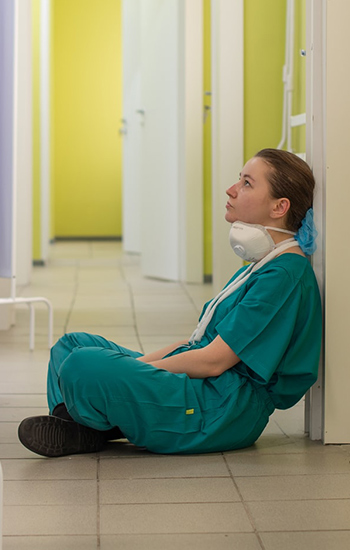COMPANY CULTURE
Stress management is essential for a healthy and productive lifestyle
The COVID-19 pandemic has added a significant number of stressors to our lives. We are concerned about the length, severity, and impact of the pandemic. We are worried about social isolation and the risks it poses, both to ourselves and our teammates. And we are concerned about the health of our family and those we care about.
As we learn to navigate this challenging time, it’s important for us to learn how to navigate the obstacles together and be supportive of one another. We want to empower our team members with strategies to manage stress, so we can continue to thrive as a group. This article is the second in our series on workplace challenges and will give you strategies for how to navigate the challenges of stress.
Firstly, it is important to know how stress can manifest itself and how you can respond to it.
A certain amount of stress is good for us. It gives us the energy to perform well, motivates and stimulates us, and makes us more focused. The problems begin when there is too much, it lasts too long, or it comes too often. Then it’s called “distress” and we start to feel tired, exhausted, or even sick.
We want to empower our team members with strategies to manage stress, so we can continue to thrive as a group. - Shiva Lotfi, Senior People and Culture Manager
There’s a lot we can do as individuals to help take the stress out of our stress levels. Here are some helpful ideas we’re encouraging our people to consider:
Schedule time to connect and disconnect:
Making yourself available to your work 24/7 prevents you from refocusing and recharging. Instead, if you must connect, try doing it at designated times. Scheduling short blocks of time will alleviate stress without sacrificing availability. Additionally, don’t let chores or housework take over your whole weekend. Instead, schedule small spurts of time throughout the week to ensure you have time to relax on your days off.
Take time for exercise/play:
Getting your body moving for as little as 10 minutes per day reduces stress and also improves energy. Exercise is also a great way to imagine new ideas. Innovators know that being outdoors often sparked creativity. The key is to make physical activity part of your weekly routine. It should be something you enjoy because if you don’t, you will find every excuse not to do it.
Pursue a passion:
Indulging your passions is a great way to escape stress and to open your mind to new ways of thinking. Playing music, reading, writing, and painting can help stimulate different modes of thought that can reap huge rewards over the coming week.
Spend quality time with family:
Spending quality time with your family is essential if you want to recharge and relax. Weekdays are so hectic that the entire week can fly by with little quality family time. Maximize your weekends the best you can by doing COVID-safe activities with your kids, such as art or playing a board game. At the same time, it can be difficult to find time for yourself, especially if you have a family. One possibility is to get up early to do something physical, and then engage in something mental, while your mind is at its peak. Finding a way to engage in an activity that you’re passionate about first thing in the morning can pay off in happiness and clarity of mind.
Try to get more sleep:
Sleep deprivation can show up in our bodies as stress. When you’re not getting enough sleep, you are less resilient in dealing with stressful situations during the day, less creative as a problem solver, and less innovative in terms of your thinking at work. Instead, try to go to bed earlier, sleep in a bit on the weekend, or power nap for 20 minutes in the afternoon. The extra sleep can make you feel more refreshed and help your immune system to produce T lymphocytes that fight infection.
Reflect and reframe:
Weekly reflection is a powerful tool for improvement. Without the distractions of a busy week, we can see things in a whole new light. Most of our stress comes not from what happens, but the way we think about what happens. Re-framing is a way of intentionally changing your perspective. Is it possible to reduce stress by changing the way we think? If you’re overloaded at work, you can worry how you will have time to get it all done. Or, you can look at it as being an exciting day where you can shine.
Prepare for the Upcoming Week
The weekend is a great time to spend a few moments planning your upcoming week. As little as 30 minutes of planning can yield significant gains in productivity and reduced stress. The week feels a lot more manageable when you go into it with a plan.
As we face increasing stressors in the world around us, it is important to learn how to navigate them so that we can continue to be at our best as a team. I hope these ideas can help spark a healthier and more rewarding lifestyle for each of us.
Read Next
Article
Nursing focused design: How do we heal the healers?
By: Ian Sinclair
Article
Healthcare design and the power of empathy
By: Ian Sinclair
We’d love to get to know you
Get in touch
"*" indicates required fields
Get in touch
Share




